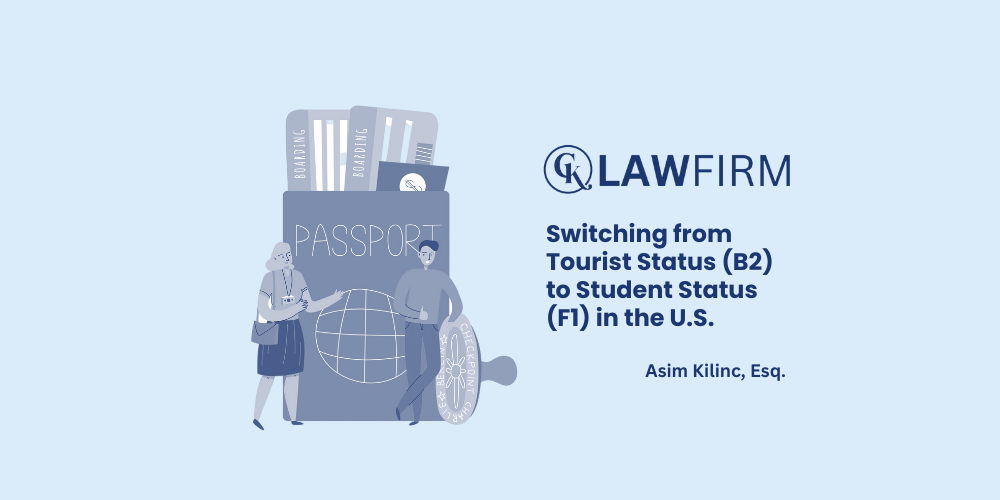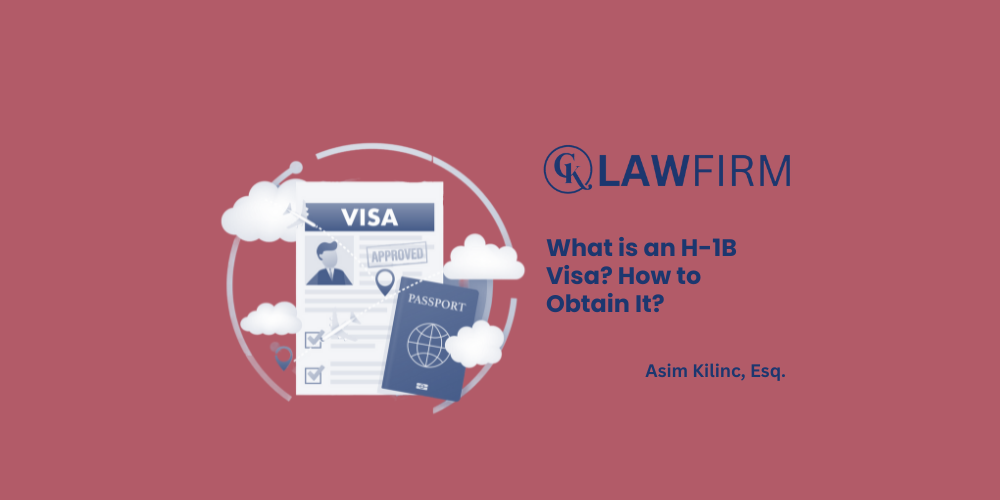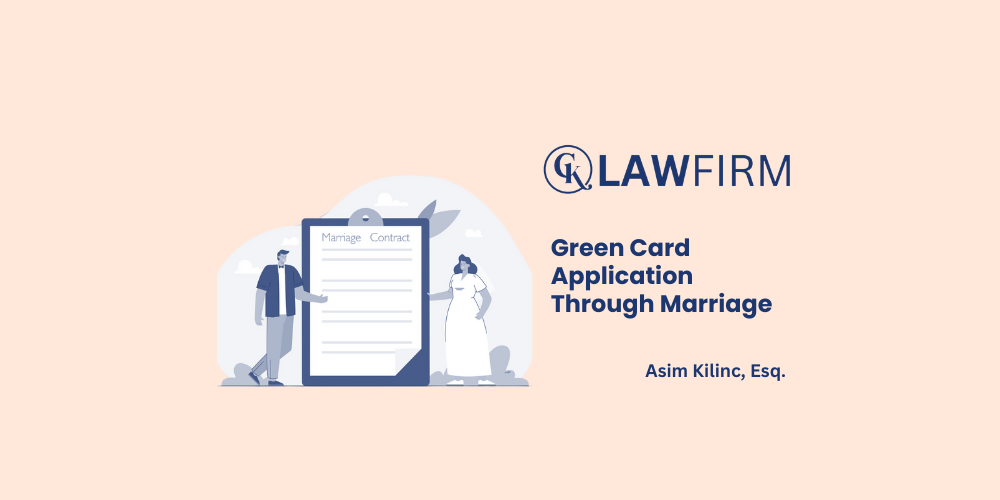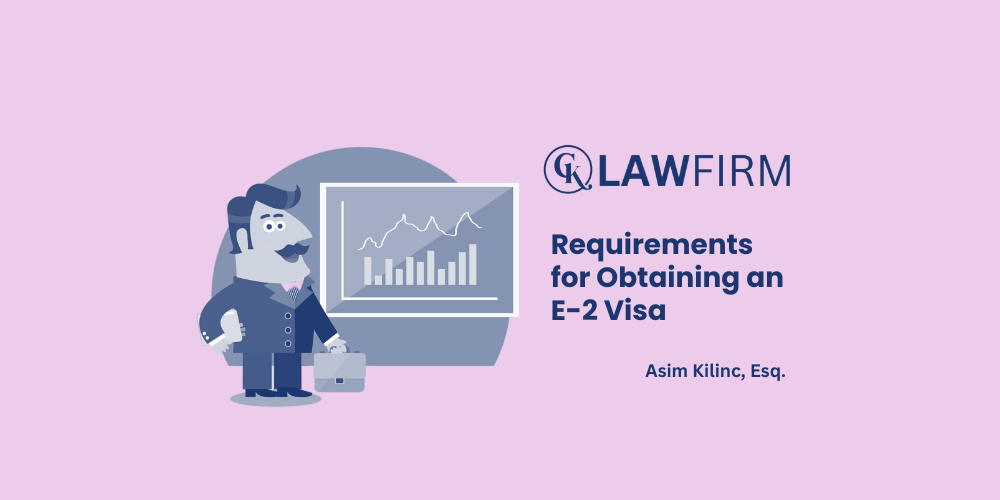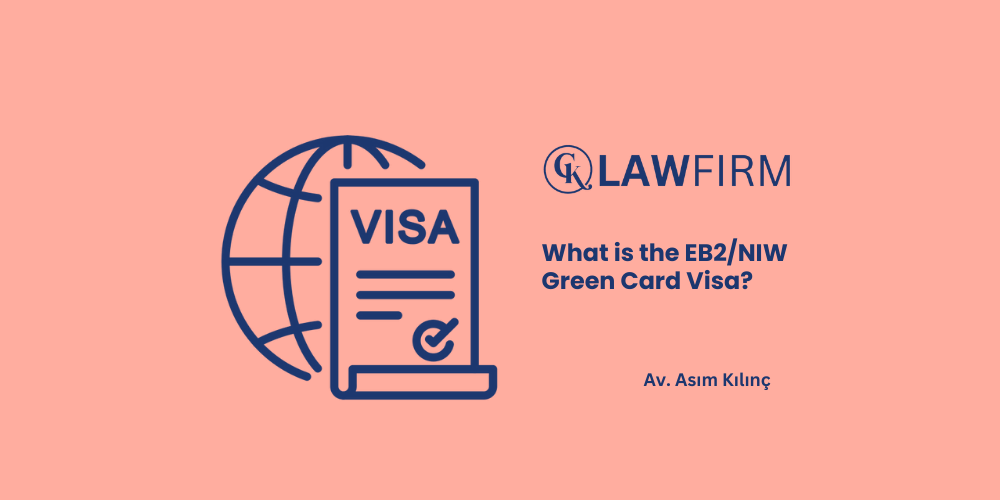Schedule an Appointment with Our Attorneys Now
By Asim Kilinc, Immigration Attorney at CK Law Firm
Many individuals who enter the U.S. as tourists may later consider switching to student status to pursue education. This can be an attractive option for those looking to take advantage of educational opportunities and build a career in America. However, the process of changing from a B2 tourist visa to an F1 student visa is governed by strict rules and requires careful planning. In this article, we will cover the details of the transition from tourist to student status within the U.S. and the steps you need to follow:
- Key Differences Between the B2 Tourist Visa and the F1 Student Visa
- Intent Issues: Things to Keep in Mind if You Plan to Study When Entering the U.S.
- Requirements for Status Change
- The Application Process for Status Change
- What to Do After Your Application is Approved
- What to Do if Your Application is Denied
For additional questions, feel free to reach out through the comments section of this article, send me a message directly on LinkedIn, or contact me via the CK Law Firm Immigration Law Firm website, which I co-founded.
Key Differences Between the B2 Tourist Visa and the F1 Student Visa
The B2 visa allows you to enter the U.S. as a tourist. It is typically used for tourism, medical treatment, or short-term visits. However, the B2 visa does not permit you to work or study in the U.S. If you decide to pursue education, you will need to switch to an F1 student visa.
The F1 visa is required for individuals planning to undertake full-time studies in the U.S. It allows you to attend universities, colleges, language schools, or other academic institutions. The F1 visa can be obtained either by applying at a U.S. consulate outside the country or through a change of status within the U.S. This article will focus on the latter.
Intent Issues: Things to Keep in Mind if You Plan to Study When Entering the U.S.
When entering the U.S. on a B2 visa, your intent must be for tourism. Immigration authorities may deny your request if they suspect you entered the U.S. with the primary intention of studying.
It’s essential to prove that you had no intention of studying at the time of your entry. Applying for an F1 visa immediately after entering the U.S. could lead authorities to believe that your actual intent was education rather than tourism. Therefore, it is generally recommended to wait at least 90 days after entering the U.S. before applying for a change to F1 status.
Requirements for Status Change
To switch from a B2 tourist visa to an F1 student visa within the U.S., you must meet certain criteria:
- Hold a valid B2 visa: You must have legally entered the U.S. with a B2 visa that has not expired.
- Declare your intent to study: To change to F1 status, you must provide proof of enrollment in a full-time academic program.
- Prove financial resources: Studying and living in the U.S. can be expensive, so you must demonstrate sufficient financial resources to cover your tuition and living expenses. Bank statements or sponsor letters are critical at this stage.
- Apply within the legal time frame: You must submit your application before your B2 visa expires. Failure to do so may result in denial of your application and unlawful presence in the U.S.
Application Process for Status Change
To change your status from a B2 tourist visa to an F1 student visa within the U.S., follow these steps:
a. Enroll in a U.S. Educational Institution and Obtain the I-20 Form
The first step is to be accepted by a U.S. educational institution. Once accepted, the school will issue an I-20 form. This document confirms that you are enrolled as a full-time student and can meet the financial requirements for your studies.
b. Fill Out and Submit Form I-539
To apply for a status change, you must complete and submit Form I-539. This can be done online or by mail through USCIS (U.S. Citizenship and Immigration Services).
Along with Form I-539, you must submit the following documents:
- The I-20 Form: Provided by your educational institution.
- Financial proof: Bank statements or sponsor documents demonstrating your ability to cover educational and living expenses.
- A copy of your passport and current B2 visa.
- Acceptance letter: The official acceptance letter from your school.
- Application fee: Payment for the application process.
c. Processing Time
It may take several months for USCIS to process your change of status application. During this period, your B2 tourist status must remain valid. You cannot start your education until your F1 status is approved.
USCIS may request additional documentation or schedule an interview. Submitting complete and accurate information will improve your chances of approval.
What to Do After Your Application is Approved
Once approved, you may begin your studies as an F1 student. The F1 visa allows you to study full-time in the U.S. but comes with certain restrictions:
- Part-time employment: F1 visa holders can generally work up to 20 hours per week on campus. Special permits are required for off-campus work (such as CPT or OPT).
- Visa renewal: You can maintain F1 status until your academic program ends. After completion, you must either leave the U.S. or apply for another visa status.
What to Do if Your Application is Denied
If your application is denied, USCIS will inform you of the reasons for denial. At this point, you have several options:
- Leave the U.S.: You must leave the country before your B2 visa expires to avoid unlawful presence.
- Apply for an F1 visa abroad: After leaving the U.S., you may apply for an F1 visa at a U.S. consulate in your home country.
- Appeal the decision: You may have the right to appeal and request a reconsideration. However, this process can be complex, and professional legal assistance may be necessary.
Conclusion
Changing from tourist to student status in the U.S. is possible with careful planning and the correct documentation. Following USCIS rules, submitting a complete application, and providing necessary documents are critical. Each case is unique, so working with an experienced immigration attorney can increase the chances of success. At CK Law Firm, we provide professional support for B2 to F1 status changes and other immigration matters, helping you start your education journey in the U.S. with confidence. For more information, feel free to contact us at cklawfirm.org, via email at info@cklawfirm.org, or through LinkedIn.
Who is Attorney Asım Kılınç?
Attorney Asım Kılınç is the co-founder of CK Law Firm and is recognized for his expertise in immigration law and U.S. asylum applications. Kılınç completed his Master’s degree at Southern Methodist University Dedman School of Law and is a member of the Missouri Bar Association, with a focus on U.S. immigration law.
Attorney Kılınç’s extensive knowledge and experience in immigration law have significantly contributed to CK Law Firm’s success in this field. He has actively participated in the preparation of over 1,000 cases, demonstrating his expertise in this area. By providing comprehensive and professional legal support to his clients, he helps them adapt to their new lives in the U.S.
Attorney Kılınç is also well-versed in U.S. asylum applications. He meticulously guides his clients through the process and ensures they receive the best legal advice. He provides top-quality service to clients in matters of citizenship, Green Card, work permits, and other immigration processes, supporting them from start to finish on their journey to U.S. citizenship.
Attorney Asım Kılınç, who solidifies CK Law Firm’s leadership in immigration law and U.S. asylum applications, offers reliable and effective legal consultancy services to clients, assisting them in building a new life in the U.S.
By Asim Kilinc, Immigration Attorney at CK Law Firm
The H-1B visa is a temporary work permit designed for foreign professionals who wish to work in the U.S. This type of visa is especially important for highly skilled workers and allows U.S. employers to hire foreign employees for positions that require specialized knowledge and skills. In this article, we will detail what the H-1B visa is and how to apply for it:
- What is an H-1B Visa?
- What are the Advantages of the H-1B Visa?
- What are the Requirements for the H-1B Visa?
- How to Apply for the H-1B Visa?
- H-1B Visa Duration and Renewal
If you have additional questions about the this visa, please don’t hesitate to reach out to me through the comments section below, by sending me a message directly via LinkedIn, or via the CK Law Firm website, where I am a co-founder.
What is an H-1B Visa?
This visa is regulated under section 101(b) of the U.S. Immigration and Nationality Act and applies to “specialty occupations.” These occupations typically involve fields that require advanced education and expertise, such as science, engineering, information technology, finance, and healthcare. H-1B visa holders may temporarily reside in the U.S. to work for a specific employer.
Advantages of the H-1B Visa
The H-1B visa offers many benefits to foreign professionals who want to work in the U.S.:
- Legal Work Authorization in the U.S.
The H-1B visa grants foreign professionals the legal right to work in the U.S. It provides them with an opportunity to develop their careers by working for a specific employer in the U.S. This is especially beneficial for those seeking to gain experience in the U.S. job market. - Long-Term Employment Opportunities
Typically, the H-1B visa is granted for an initial period of 3 years and can be extended up to 6 years. This long-term work opportunity allows visa holders to work steadily in the U.S. and advance their careers. During this period, H-1B holders can also work on long-term projects with their U.S. employers. - Eligibility for Green Card Application
H-1B visa holders may apply for permanent residency (Green Card) in the U.S., provided they meet certain conditions. This visa is considered a significant step toward transitioning to a Green Card, enhancing the opportunity for visa holders to live and work in the U.S. permanently. - Family Members Can Join in the U.S.
H-1B visa holders can apply for H-4 visas for their spouses and unmarried children under 21 years of age. With the H-4 visa, family members can come to the U.S. and live with the visa holder. Under certain conditions, H-4 spouses may also apply for a work permit. - Professional Development and Educational Opportunities
By working in the U.S., H-1B visa holders can develop their professional skills and gain a competitive edge in the global job market. They may also have the opportunity to participate in various educational and certification programs in the U.S., which can help advance their careers and obtain internationally recognized qualifications. - High Salaries and Social Benefits
Working in the U.S. often comes with high salaries and various social benefits. H-1B visa holders may benefit from health insurance, retirement plans, and other social benefits offered by U.S. employers, improving their overall quality of life in the U.S. - Freedom to Travel
This visa holders are allowed to leave and re-enter the U.S. during their visa period. This provides flexibility for those who need to travel for work or personal reasons. However, it is essential to ensure that their visa status is up to date before making travel plans.
Requirements for the H-1B Visa
To apply for an this visa, the following conditions must be met:
Employer Sponsorship
A U.S.-based employer must sponsor the foreign professional for this visa. The employer must prove the need for the foreign worker and demonstrate that there are no sufficient qualified American citizens available for the position. Additionally, the employer must show that the salary offered to the H-1B worker aligns with the wages paid to similarly qualified American workers.
Specialty Occupation
This visa only applies to certain occupations. Accepted occupations typically require advanced expertise in fields such as science, engineering, IT, finance, and healthcare.
Education and Professional Qualifications
The applicant must possess the necessary education and qualifications for the position. Typically, at least a bachelor’s degree is required. In some cases, equivalent professional experience may also be accepted. The application must include educational and professional documentation.
Annual Cap
H-1B visa applications are subject to an annual cap. The U.S. Citizenship and Immigration Services (USCIS) grants 65,000 new H-1B visas annually, with an additional 20,000 visas reserved for foreign nationals who have graduated from U.S. higher education institutions. Applications usually open in April, and once the cap is reached, the application window closes.
Application Process and Required Documents
The employer must submit a Labor Condition Application (LCA) to the U.S. Department of Labor. After the LCA is approved, the employer submits Form I-129 to USCIS, along with relevant fees and supporting documentation.
How to Apply for an H-1B Visa?
- Labor Condition Application (LCA) Approval
The employer first submits the LCA to the U.S. Department of Labor. - Form I-129 Petition
Once the LCA is approved, the employer submits Form I-129 to USCIS. - Fees
Application fees are usually covered by the employer. - Lottery Process
If the cap is reached, USCIS uses a lottery to decide which applications will be processed. - Application Result
USCIS reviews the application and issues a decision. If approved, the applicant can travel to the U.S. to begin working.
H-1B Visa Duration and Renewal
The H-1B visa is typically granted for 3 years and can be extended for up to 6 years. When the visa period expires, the applicant must either leave the U.S. or renew the visa.
Conclusion
This visa is an important opportunity for foreign professionals to work in the U.S. However, due to the complexity of the process and the annual cap system, it is essential to carefully manage the process. For more detailed information and consultation services, feel free to contact us through the CK Law Firm website at cklawfirm.org, via email at info@cklawfirm.org, or reach out to us on LinkedIn.
Who is Attorney Asım Kılınç?
Attorney Asım Kılınç is the co-founder of CK Law Firm and is recognized for his expertise in immigration law and U.S. asylum applications. Kılınç completed his Master’s degree at Southern Methodist University Dedman School of Law and is a member of the Missouri Bar Association, with a focus on U.S. immigration law.
Attorney Kılınç’s extensive knowledge and experience in immigration law have significantly contributed to CK Law Firm’s success in this field. He has actively participated in the preparation of over 1,000 cases, demonstrating his expertise in this area. By providing comprehensive and professional legal support to his clients, he helps them adapt to their new lives in the U.S.
Attorney Kılınç is also well-versed in U.S. asylum applications. He meticulously guides his clients through the process and ensures they receive the best legal advice. He provides top-quality service to clients in matters of citizenship, Green Card, work permits, and other immigration processes, supporting them from start to finish on their journey to U.S. citizenship.
Attorney Asım Kılınç, who solidifies CK Law Firm’s leadership in immigration law and U.S. asylum applications, offers reliable and effective legal consultancy services to clients, assisting them in building a new life in the U.S.
By Asim Kilinc, Immigration Attorney at CK Law Firm
Applying for a Green Card through marriage is one of the most common ways for foreign nationals to obtain legal residency and work authorization in the United States. This process can be complex and includes many important steps. In this article, we will outline the details of the application process and highlight key points for a successful application:
- The Green Card Application Process
- Required Documents and Evidence
- Interview and Preparation Process
- Key Considerations During the Application Process
- Potential Issues During the Application Process
If you have any further questions, please feel free to reach out via the comments section below, send me a direct message on LinkedIn, or contact me through the website of CK Law Firm, where I serve as a co-founder.
Green Card Application Process
a. Filing Form I-130 and I-485:
The first step in the process is for the U.S. citizen or Green Card holder spouse to file Form I-130 on behalf of the foreign spouse. This form is the foundation of the family-based immigration application. If the foreign spouse is already in the U.S., they can simultaneously file Form I-485 for adjustment of status. Once Form I-130 is approved, applicants may submit Form I-485 to transition to lawful permanent resident status.
b. National Visa Center Process:
Once Form I-130 is approved, the application is sent to the National Visa Center (NVC). The NVC collects required documents and information, and then schedules an interview. The interview takes place at a U.S. consulate outside the United States.
c. Receiving the Conditional Green Card:
If the interview is successful, the foreign spouse will receive a two-year conditional Green Card. This card serves as a trial period to determine whether the marriage is genuine.
d. Transitioning to a Permanent Green Card:
Before the conditional Green Card expires, within 90 days, the couple must file Form I-751 to remove the conditions on the residency. At this stage, additional documents proving the legitimacy of the marriage must be provided. Once approved, the foreign spouse will receive a 10-year permanent Green Card.
Required Documents and Evidence
One of the most critical aspects of the application process is providing documents that prove the marriage is real. These documents may include:
- Identity and Birth Certificates: Birth certificates, passport copies, and citizenship or Green Card documentation of the U.S. citizen or permanent resident spouse.
- Proof of Marriage: Marriage certificate, wedding photos, joint bank account statements, lease agreements, photos taken together, and affidavits from family or friends.
- Medical Report: Form I-693, showing the applicant’s medical condition.
- Criminal Records: If the applicant has any criminal record, it must be documented.
Interview and Preparation Process
The interview is one of the most critical steps in the marriage-based Green Card application. During the interview, the authenticity of the marriage is questioned, and the couple may be asked about how well they know each other. When preparing for the interview, couples should keep the following points in mind:
- Provide Consistent Answers: The spouses must give consistent and harmonious answers during the interview. The officer may ask questions to each spouse separately and look for inconsistencies.
- Thorough Preparation: Couples should review their past memories, details of their marriage, and daily life. Knowing key dates, family members, and special moments spent together can be helpful during the interview.
Key Considerations During the Application Process
a. Timing:
It is important to complete the application process on time. Since the Green Card process can take several months, applications must be submitted completely and on time. Additionally, it is essential to apply with the necessary documents before the conditional Green Card expires.
b. Seek Professional Help:
Applying for a Green Card through marriage can be complex. To avoid errors at any stage of the process, it is advisable to seek professional support from an immigration lawyer.
c. Preventing Fraud Allegations:
The USCIS has strict measures in place to prevent fraudulent marriages. Therefore, it is crucial to present all details transparently and provide complete documentation during the application process.
Potential Issues During the Application Process
There may be some issues when applying for a Green Card through marriage. These problems often stem from the submission of incomplete or incorrect documents. Additionally, if the couple has a history of divorce or children from previous marriages, this can complicate the process. In such situations, consulting an immigration lawyer is the best course of action.
Conclusion
Applying for a Green Card through marriage is one of the most effective ways to obtain legal residency and work authorization in the U.S. However, to successfully complete this process, careful preparation and submission of the correct documents are required.
CK Law Firm is pleased to offer professional support for your marriage-based Green Card applications. For detailed information and consultation services, you can reach us via cklawfirm.org, info@cklawfirm.org, or LinkedIn.
Who is Attorney Asım Kılınç?
Attorney Asım Kılınç is the co-founder of CK Law Firm and is recognized for his expertise in immigration law and U.S. asylum applications. Kılınç completed his Master’s degree at Southern Methodist University Dedman School of Law and is a member of the Missouri Bar Association, with a focus on U.S. immigration law.
Attorney Kılınç’s extensive knowledge and experience in immigration law have significantly contributed to CK Law Firm’s success in this field. He has actively participated in the preparation of over 1,000 cases, demonstrating his expertise in this area. By providing comprehensive and professional legal support to his clients, he helps them adapt to their new lives in the U.S.
Attorney Kılınç is also well-versed in U.S. asylum applications. He meticulously guides his clients through the process and ensures they receive the best legal advice. He provides top-quality service to clients in matters of citizenship, Green Card, work permits, and other immigration processes, supporting them from start to finish on their journey to U.S. citizenship.
Attorney Asım Kılınç, who solidifies CK Law Firm’s leadership in immigration law and U.S. asylum applications, offers reliable and effective legal consultancy services to clients, assisting them in building a new life in the U.S.
By Asim Kilinc, Immigration Attorney at CK Law Firm
For millions of people dreaming of living and working permanently in the United States, the DV Lottery (Diversity Visa) offers a great opportunity. Organized annually by the U.S. government, this lottery gives applicants from all over the world a chance to win a Green Card. However, this process involves much more than just a simple lottery. By reading this article, you can find answers to the following questions:
- What is the DV Lottery?
- Who Can Apply for the DV Lottery?
- DV Lottery Application Process
- Steps to Follow After Winning the DV Lottery
- Living in the U.S. with the DV Lottery
If you have questions about the E2 Investor visa type besides these, please remember that you can contact me via the comments section below this article, directly through LinkedIn, or through the website of CK Law Firm, the Immigration Law Firm I co-founded!
What is the DV Lottery?
The Diversity Visa Lottery, commonly known as the DV Lottery, is a program organized annually by the U.S. government. This program offers individuals from certain countries the chance to gain permanent residency in the U.S., commonly known as a Green Card. Approximately 50,000 people win a Green Card through this lottery every year. The DV Lottery is aimed at citizens of countries that do not send many immigrants to the United States. This program aims to increase ethnic diversity in the U.S.
Who Can Apply for the DV Lottery?
To participate in the DV Lottery, the applicant’s place of birth must be in one of the eligible countries determined by the U.S. Additionally, applicants must have at least a high school education or have worked in a specialized job for at least two years within the last five years. Individuals who do not meet the education or work experience requirements cannot participate in the DV Lottery.
DV Lottery Application Process
- Online Application: Applications can only be submitted online through the official website of the U.S. Department of State. The application period usually begins in October and ends in November. During this time, the application form must be filled out carefully, and all required information must be provided completely.
- Required Information and Documents: During the application process, applicants are asked for personal information, educational background, place of birth, and current residential address. Additionally, a digital photo that meets the specified criteria must be uploaded. Entering incorrect or incomplete information may result in the application being considered invalid.
- Results Announcement: After applications are completed, winners are selected through a random lottery. Results are usually announced six months after the application period closes, typically in May. Applicants can check their results through the U.S. Department of State’s website. Winners must contact the U.S. Embassy to continue the Green Card application process.
Steps to Follow After Winning the DV Lottery
- Green Card Application Process: Those who win the DV Lottery must follow specific steps to obtain an entry visa to the U.S. and apply for a Green Card. These steps include gathering the necessary documents, undergoing medical examinations, and attending a consular interview. Completing each step carefully and on time is crucial for a successful application.
- Medical Examination and Police Records: During the Green Card application process, applicants must undergo certain medical examinations and present a clean police record before entering the U.S. These documents are submitted to U.S. authorities as part of the application process.
- Consular Interview: After all documents are collected, applicants are called for an interview at the U.S. Embassy. This interview is conducted to assess whether the applicant is eligible to immigrate to the U.S. During the interview, questions may be asked about the applicant’s plans for settling in the U.S., educational background, and work history.
- Visa Approval and Entry into the U.S.: Applicants who successfully pass the interview will receive the necessary immigrant visa to enter the U.S. After the visa is approved, applicants must enter the U.S. within a specified period and complete the Green Card application process shortly after entry.
Living in the U.S. with the DV Lottery
Winning the DV Lottery grants permanent residency and the right to work in the U.S. This opportunity provides a significant advantage in terms of establishing a new life, taking advantage of work and educational opportunities. However, there are important legal and logistical steps to consider throughout this process. After obtaining a Green Card, understanding the rights and responsibilities involved is critical to sustaining life in the U.S.
Conclusion
The DV Lottery offers a significant opportunity for those dreaming of living and working in the U.S. However, the application process and the steps that follow require careful attention. At CK Law Firm, we provide all the legal support you need during the DV Lottery application process and help you complete this process smoothly. We are by your side at every step of your application. Remember that you can reach out to me and my team through the CK Law Firm website, via info@cklawfirm.org email, or directly through LinkedIn!
Who is Lawyer Asım Kılınç?
Lawyer Asım Kılınç, as a founding partner of CK Law Firm, stands out with his mastery of both international law and the American legal system, gained through years of experience. Completing his Master’s degree at Southern Methodist University Dedman School of Law, Kılınç is registered with the Missouri Bar and specializes in U.S. immigration law. His deep knowledge and experience in immigration law have significantly contributed to CK Law Firm’s successes in this field. Having participated in the preparation processes of over 1,000 cases in immigration law, Lawyer Kılınç has proven his expertise in this field, providing comprehensive and professional legal support to his clients, facilitating their adaptation to their new lives in the U.S.
Strengthening CK Law Firm’s leadership in immigration law, Lawyer Kılınç offers reliable and effective legal consultancy services to his clients, standing by them in their journey to establish a new life in the U.S. He works to ensure that his clients receive the highest quality service in citizenship, Green Card, work permit, and other immigration processes, providing support to his clients throughout the entire process, from the beginning to U.S. citizenship.
By Asim Kilinc, Immigration Attorney at CK Law Firm
The E-2 visa presents a unique opportunity for entrepreneurs who wish to establish a business in the United States through investment. This visa type is available to citizens of countries that have trade agreements with the U.S., making it ideal for those who want to start a business or invest in an existing one in America. However, there are specific requirements that must be met to apply for this visa. In this article, I will discuss the necessary conditions for obtaining an E-2 visa. By the end of this article, you will find answers to the following questions:
- What is an E-2 Visa?
- Requirements for an E-2 Visa
- E-2 Visa Application Process
If you have any further questions about the E-2 Investor visa, please don’t hesitate to contact me through the comments section below, send me a message directly on LinkedIn, or reach out through the website of CK Law Firm, where I am a co-founder.
What is an E-2 Visa?
The E-2 visa is a temporary visa granted to citizens of countries that have trade agreements with the United States. This visa type is designed for entrepreneurs who wish to establish or invest in a business in the U.S. The E-2 visa allows the investor and their family to live and work in the United States. The visa duration can be renewed as long as the investment continues, offering entrepreneurs a long-term opportunity to stay in America.
Requirements for an E-2 Visa
Qualified Investor Status
The applicant must be a citizen of a country that has a trade agreement with the United States. This shows that the investment is based on the agreement with that country.
Substantial Capital Investment
The investment in the U.S. must be significant in size. The amount of capital required may vary depending on the type and size of the business, but it must be sufficient to make the business operational and sustainable. The key is that the investment must be actively operating and not just on paper.
Active Business and Management
The investor must actively manage the business they are investing in and participate in the day-to-day operations. The E-2 visa is not suitable for passive investors. The investor must maintain control of the business and manage its operations.
Real and Commercially Viable Investment
The investment must be made in a real business and be commercially viable. The investment is expected to contribute to the American economy, not just for profit. For example, speculative or real estate investments do not fall under this category.
Sustainability and Business Plan
The investment must be structured to support not only the investor but also the American workforce. The business must employ American citizens and Green Card holders. The business plan must detail how the investment will succeed, requiring a solid business plan and projections that demonstrate the long-term viability of the business.
Irrevocable Investment
The investment must not be a recoverable investment. In other words, the invested capital must be at risk depending on the success of the business. This demonstrates that the investment is serious and permanent.
Temporary Stay
The E-2 visa grants the investor the right to stay temporarily in the U.S., with the possibility of renewal as long as the business continues. However, the E-2 visa does not provide permanent residency status.
Family Members
The spouse and children under 21 of an E-2 visa holder are also allowed to live and work in the United States. Spouses can work in any job, and children can continue their education. This ensures the unity of the family.
E-2 Visa Application Process
Preparation of a Business Plan
Before applying for an E-2 visa, a detailed business plan must be prepared. This plan should explain how the investment will be made, how the business will be managed, and how sustainability will be ensured. The business plan is a crucial document to convince the U.S. government that the investment is serious and viable.
Preparation of Application Documents
The necessary documents for the visa application must be meticulously prepared. These documents include financial details of the investment, the business plan, evidence that the investor will play an active role in the U.S. business management, and other supporting documents.
Consular Interview
After the application, the investor must attend an interview at the U.S. Consulate. During this interview, the investor will be asked questions about the business plan and investment details. The investor is expected to prove their active role in managing the business and the sustainability of the investment.
Visa Approval and Entry to the U.S.
After the interview, if the E-2 visa is approved, the investor can enter the U.S. and start or take over their business. The visa duration can be renewed depending on the sustainability of the investment and business.
Conclusion
The E-2 visa offers significant opportunities for entrepreneurs who want to start or invest in a business in the United States. However, to successfully complete this process, detailed preparation, a meticulous business plan, and the active involvement of the investor in business management are essential. Given the complexity of the process and legal requirements, seeking support from an immigration attorney can be beneficial. Don’t hesitate to contact me through the CK Law Firm’s website, via email at info@cklawfirm.org, or directly on LinkedIn!
Who is Lawyer Asım Kılınç?
Lawyer Asım Kılınç, as a founding partner of CK Law Firm, stands out with his mastery of both international law and the American legal system, gained through years of experience. Completing his Master’s degree at Southern Methodist University Dedman School of Law, Kılınç is registered with the Missouri Bar and specializes in U.S. immigration law. His deep knowledge and experience in immigration law have significantly contributed to CK Law Firm’s successes in this field. Having participated in the preparation processes of over 1,000 cases in immigration law, Lawyer Kılınç has proven his expertise in this field, providing comprehensive and professional legal support to his clients, facilitating their adaptation to their new lives in the U.S.
Strengthening CK Law Firm’s leadership in immigration law, Lawyer Kılınç offers reliable and effective legal consultancy services to his clients, standing by them in their journey to establish a new life in the U.S. He works to ensure that his clients receive the highest quality service in citizenship, Green Card, work permit, and other immigration processes, providing support to his clients throughout the entire process, from the beginning to U.S. citizenship.
For skilled individuals seeking permanent residency in the United States, the EB2/NIW Green Card visa presents a significant opportunity. This visa category, under the EB2 classification, is specifically designed for individuals with exceptional abilities or those who can contribute to the national interests of the U.S. But what exactly is the EB2/NIW visa, and who is eligible to apply? Here are the topic that we will discuss:
- What is the EB2/NIW Visa?
- Who is Eligible for the EB2/NIW Visa?
- Professions Eligible for the EB2/NIW Visa
- Professions Eligible for the EB2/NIW Visa
- EB2/NIW Visa Application Process
- Benefits of the EB2/NIW Visa
- EB2/NIW Green Card Application and Transition Process
- EB2/NIW Visa Costs and Fees
In this article, you can find answers to your questions about the topics mentioned above. However, if you have any other questions, feel free to ask them in the comments section of this blog or reach out to us through our website. Additionally, for inquiries on different topics, you can contact me via LinkedIn.
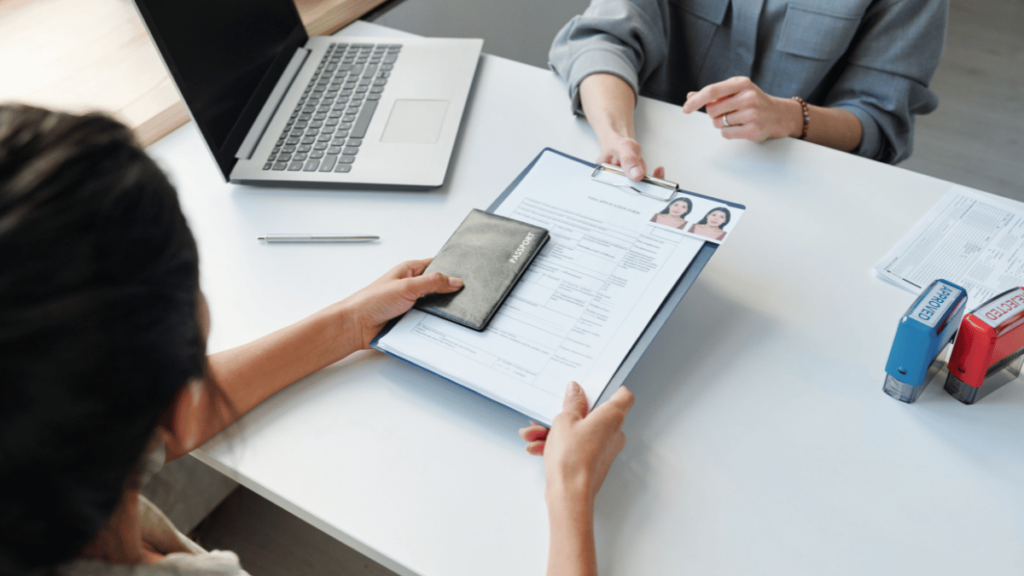
What is the EB2/NIW Visa?
The EB2/NIW visa (Employment-Based Second Preference – National Interest Waiver) is an immigrant visa category that allows highly skilled individuals to live and work in the U.S. The “National Interest Waiver” (NIW) eliminates the requirement for employer sponsorship, allowing applicants to obtain a Green Card without needing a job offer.
This visa is particularly suitable for scientists, engineers, doctors, academics, entrepreneurs, and professionals in specialized fields. Applicants must demonstrate that their contributions will benefit the U.S. economy, healthcare, education, or technology sectors.
Who is Eligible for the EB2/NIW Visa?
This visa category is ideal for:
- Individuals with advanced degrees (at least a master’s degree or equivalent work experience)
- Professionals with significant achievements in their field
- Individuals whose work is considered beneficial to U.S. national interests
Professions Eligible for the EB2/NIW Visa
Certain professions are particularly well-suited for EB2/NIW visa applications, including:
- Scientists and Researchers: Experts contributing to scientific advancements in the U.S.
- Engineers and Technology Specialists: Professionals involved in innovative projects
- Doctors and Healthcare Professionals: Individuals making critical contributions to healthcare
- Academics and Educators: Those enhancing the U.S. education system
- Entrepreneurs and Business Leaders: Innovators contributing to the U.S. economy
- Pilots: Experienced pilots may apply, considering the U.S. aviation sector’s demand for skilled professionals. Applicants must demonstrate how they contribute to national air safety and transportation infrastructure.
EB2/NIW Visa Application Process
The application process for an EB2/NIW visa consists of the following steps:
- Eligibility Assessment: Reviewing academic background, work experience, and achievements.
- Providing NIW Evidence: Submitting supporting documents such as recommendation letters, research publications, and proof of contributions.
- Filing Form I-140: Submitting the petition to U.S. Citizenship and Immigration Services (USCIS).
- Applying for a Green Card: Once approved, applicants proceed with status adjustment or consular processing.
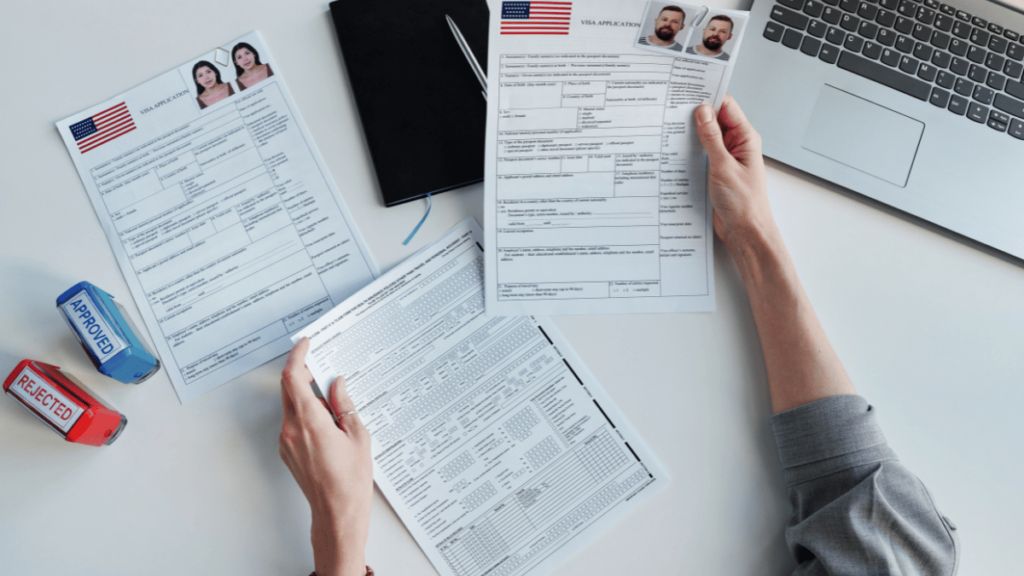
Benefits of the EB2/NIW Visa
- No Employer Sponsorship Required: Applicants can apply without employer support.
- Direct Path to a Green Card: Approval leads to permanent residency.
- Work and Live in the U.S.: A great opportunity for highly skilled individuals.
- Residency for Spouse and Children: Family members also receive residency rights.
EB2/NIW Green Card Application and Transition Process
The EB2/NIW visa is one of the key steps in obtaining a Green Card. After the application process is completed, the following stages are followed:
Form I-140 Approval: The application must be accepted by USCIS.
Visa Number Availability: A visa number must become available according to the annual quota set by the U.S. Citizenship and Immigration Services (USCIS).
Form I-485 or Consular Processing:
- If you are inside the U.S., you can change your status with Form I-485.
- If you are outside the U.S., you can complete the Green Card application through the nearest U.S. consulate.
Interview and Final Processing: You may be called for an interview by USCIS or consular officials.
Green Card Approval and Delivery: Once all steps are successfully completed, your Green Card is printed and sent to your address.
EB2/NIW Visa Costs and Fees
The total cost of an EB2/NIW application varies depending on legal services and application requirements. However, basic costs include:
- I-140 Petition Fee: $700
- Green Card Processing Fees: Approximately $1,140
The EB2/NIW Green Card visa provides a great advantage for skilled professionals who wish to live in the U.S. without employer sponsorship. If you hold an advanced degree, have expertise in your field, and can make significant contributions to the U.S., this visa may be an excellent option for you.
To learn more about the EB2/NIW visa and start your application process, consulting an immigration attorney is highly recommended! If you have any questions in mind, you can contact us through our website. Additionally, you can always reach out to me directly via my LinkedIn account for one-on-one communication.
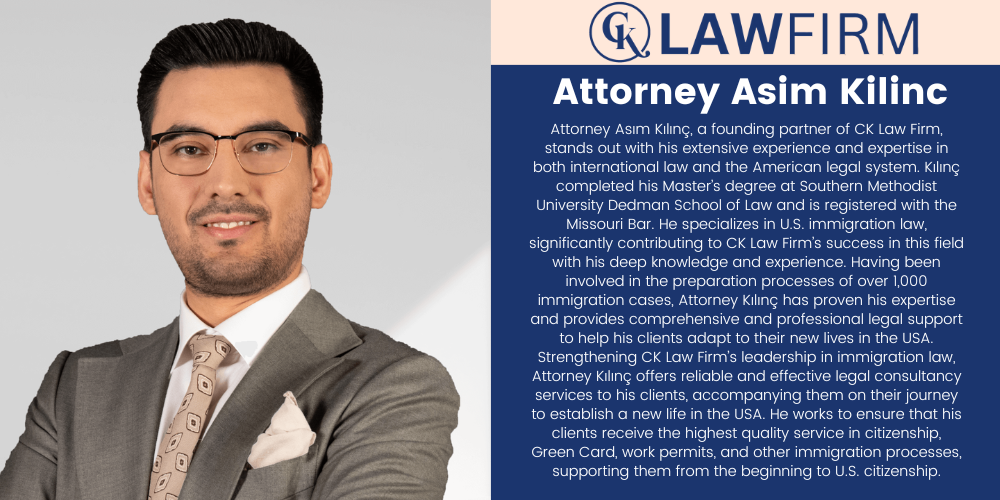
Subscribe to Our Newsletter
Subscribe to our newsletter to stay informed about the latest announcements and articles written by our attorneys on U.S. immigration processes.
Sobre Nosotros
Contáctanos
+1 (945) 527- 23 22
Correo electrónico
info@cklawfirm.org
Dirección
2800 Regal Rd #102, Plano, TX 75075

All Rights Reserved by CK Law Firm.


